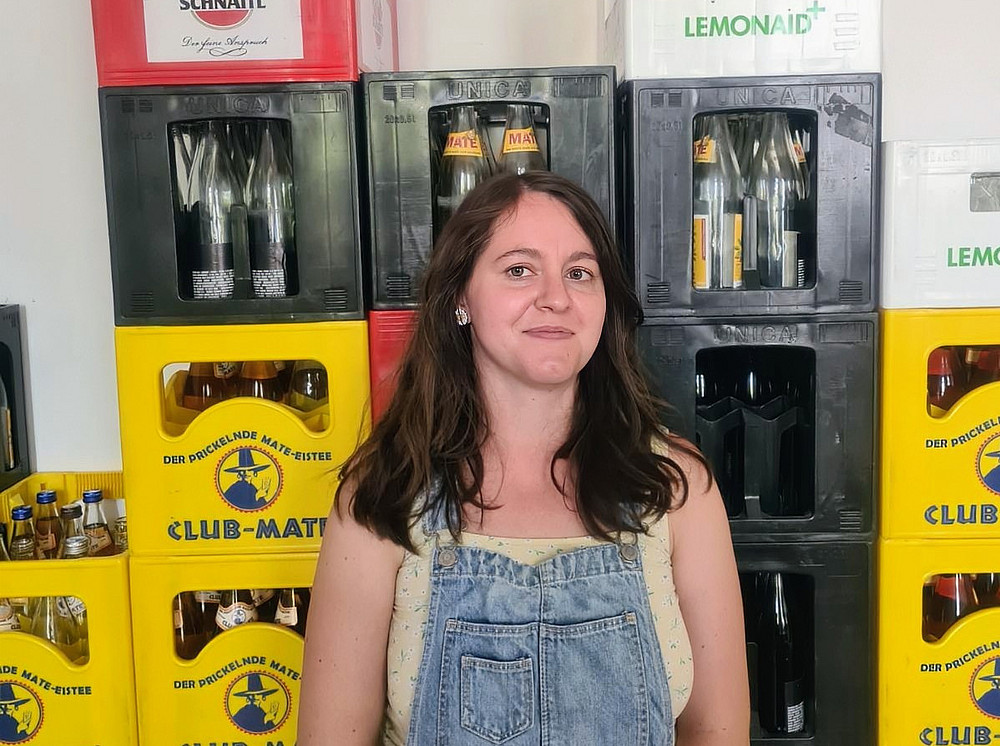
Between compost and Super 8
When is something garbage and why is it composted? Who makes amateur films and how are they received? Tabea Söregi deals with these and other questions. The cultural anthropologist's research focuses on media use, the history of technology and gender, dis/order and material culture. Her current research project deals with amateur narrow-gauge films from the 1920s to the 1990s.
You can argue about compost
At first, it may come as a surprise that a cultural anthropologist is devoting herself to the subject of compost. And yet Tabea Söregi wrote about "Den Kompost feststampfen. Discourses and practices of composting in two portraits" for her Master's thesis at the University of Vienna. It may sound simple, explains Ms Söregi, but it is a thoroughly polarizing topic and there are also many different opinions on what "correct" composting is, what beneficial organisms are, what pests are and so on. She also explored the different ideologies behind the motivation to compost. Some have ecological motives, while others come from the prepper scene. This can lead to heated debates.
But what is waste anyway? Garbage is something that is normally outside of society. We only notice it (negatively) when we see it - if it is lying around, we dispose of it immediately; so it also reflects something about the social order in which we live, according to Ms. Söregi. What is defined as garbage and what is not is not inherent in the objects, but something that is decided culturally or personally. One example of this would be the banana peel: for one person it belongs in the bin, for another in the compost and yet another turns it into fertilizer. Another, less obvious, example is collector's items, which often change in value immensely over time - and their quantitative availability. What was thrown away as obsolete 100 years ago can now be traded for large sums of money.
On track
Tabea Söregi is currently working on amateur films from the Styrian private collection of the Filmarchiv Austria. These are around 30,000 films with a length of 3 to 30 minutes from the period from the 1920s to the 1990s.
Amateur film was and still is considered a male-dominated hobby. In the early days, however, it was mainly marketed to women, as they were considered responsible for the private sphere. Advertising promised results that were "better than real life" itself and that could be watched again and again. The fact that only excerpts of a life were captured, often reduced to traditional roles, is hardly surprising to anyone in the age of Instagram & Co.
However, the range of footage examined by Ms. Söregi includes not only the "family idyll in a dirndl", but also film clips from the front, beach shots of women without their consent, scenes shot unobserved or unintentionally, pornographic content, drug use and much more.
When viewing the material, Tabea Söregi focuses primarily on discrepancies in the social and political embedding of amateur films today. These are often perceived and contextualized as pure "family films". However, these ideas are often romanticized and politically charged. For her dissertation, she therefore takes a look at which historical contexts are taken up for political charging and which are changed or dropped.
Teaching
A particular advantage of her position in Graz for Ms. Söregi is the opportunity to teach. In the winter semester 2024/25, she will take over the proseminar "Historical Methods". She wants to use this opportunity to teach her students not only important techniques and methods, but also new perspectives.
Tabea Söregi studied Bachelor's and Master's degrees in European Ethnology in Vienna. From 2021 to 2023, she worked at the Institute for Rural History in St. Pölten. Since December, she has been working as an assistant professor at the Department of Cultural Anthropology and European Ethnology under Professor Eisch-Angus and is writing her dissertation.